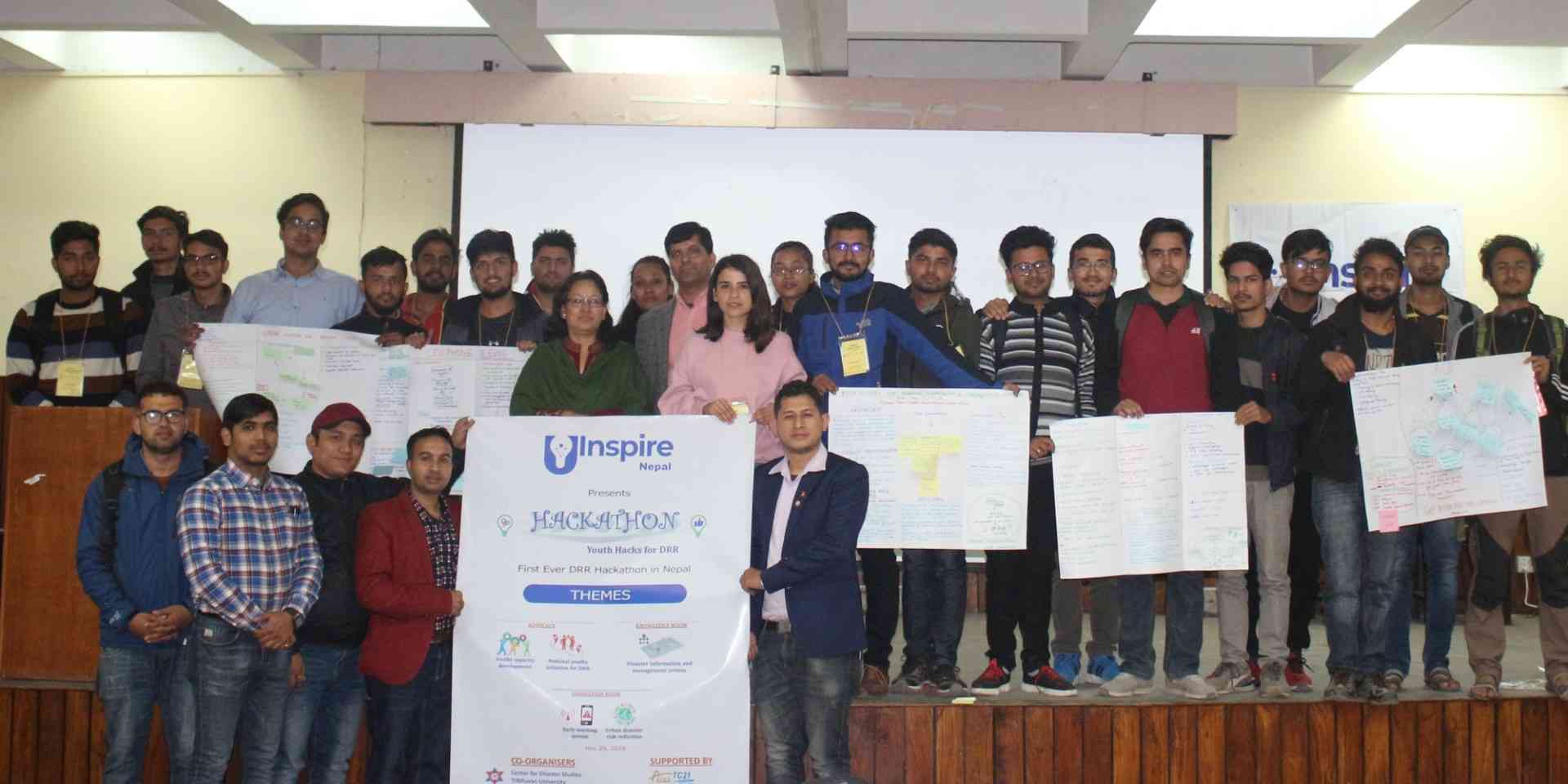Building Resilience Through Capacity Development of DRR Young Scientist in Nepal
Himalayan Risk Research Institute (HRI) is building a platform for DRR young scientists including students, researchers and young professionals. This aims to enhance the skillset, facilitate, promote and build a scientific approach to DRR activities in Nepal.
Description
Motivating, facilitating, promoting and advocating the works of young scientists and researchers is one of the essential components to building a scientific base for DRR activities in Nepal. This platform will work in this sector by coordinating with DRR professionals and young members from government and non-government organizations, national and international research institutes and universities and local governments. The knowledge and skill set of the young scientists and professionals will be enhanced through skill transfer mechanisms such as training, summer schools, exposure visits, field research, collaborations and workshops. Regular such programs will be carried out. The government bodies and mainly the local governments who have aimed for building resilient communities will further be connected within this platform. The young scientists will be conducting researches, build databases and share findings which will help the local governments to form their action plans. Thus, young scientists will get their skills enhanced while the local government will achieve their aims.
Did the Sendai Framework change or contribute to changes in your activities/organization? If so, how?
The priorities set by the Sendai Framework for Disaster Risk Reduction has helped us identify targets and develop organizational strategies for disaster risk reduction in Nepal.
What led you to make this commitment/initiative?
What was your position before making this Voluntary Commitment / prior to the Sendai Framework?
Many organizations in Nepal are contributing to disaster risk reduction through the implementation of DRR activities. But there is a huge gap in the scientific databases, research-based approaches and coordination of international research and local application. HRI was established to conduct research of hazards and disasters in Nepal. The interest and activities shown by individual young professionals during past emergencies led us to build the idea to connect those young individuals through the network. Thus, HRI now aimed to contribute to the disaster risk reduction in Nepal by mainstreaming and connecting young scientists based in Nepal and in abroad universities and research institutes and transfer knowledge.
Deliverables and Progress report
Deliverables
Deliverables are the end-products of the initiative/commitment, which can include issuance of publications or knowledge products, outcomes of workshops, training programs, videos, links, photographs, etc.
A research was carried out in Sindhupalchowk district of Central Nepal to understand the relation of road development and landslide risk. We found that the expansion of un-engineered roads was actually multiplying the chances of landslides and thus increasing the risk. Further, a major trunk road of China's Belt and Road initiative is planned to be constructed in this region and this may lead to an explosion of such un-engineered roads which then subsequently will lead to further landslide disasters. So, we concluded this policy has to be revised by the Nepal government.
A journal paper was published on this work with collaboration with international experts.
McAdoo, B. G., Quak, M., Gnyawali, K. R., Adhikari, B. R., Devkota, S., Rajbhandari, P. L., and Sudmeier-Rieux, K.: Roads and landslides in Nepal: how development affects environmental risk, Nat. Hazards Earth Syst. Sci., 18, 3203-3210, https://doi.org/10.5194/nhess-18-3203-2018, 2018.
As a part of Social Awareness Campaign, HRI in collaboration with U-INSPIRE Nepal, Institute of Himalayan Risk Reduction and Nepal Engineers' Association had developed COVID-19 safety awareness video and national situation video and shared through the social media. The main objective was to reduce the risk through awareness. The video was prepared in English as well as the local language (Nepali).
The proposal will be developed on research projects that can contribute to enhancing disaster resiliency and supporting to the development planning of local governments.
As a part of Social Awareness Campaign, HRI in collaboration with U-INSPIRE Nepal and other partner organization had developed an IEC material and shared through social media. The main objective was to reduce the risk through awareness.
HRI young scientists will be engaged in research activities. Technical support and guidance will be provided by the HRI. They will be provided with opportunities to take part in international seminar, workshop, training, and publication.
The network will be formed and orientation on program aims, objectives and vision will be conducted.
The significant number of research would be conducted, shared with local governments and skills of young scientists would be enhanced. The knowledge and information will be disseminated throughout the network. The gaps and challenges will be identified. The lessons learnt will be prepared and the way forward will be planned. The necessary scientific publications would be done. The program like seminar, workshop, conference or hackathon would be conducted targeting the youths from various disciplines.
Porgress report
HRI is a youth-led organization established with an aim to support youth from science, engineering, technology, and innovation in DRR research. In two years of commitment in SFVC, the HRI has initiated all the commitments for which notable outcomes are being witnessed. However, to involve more youth from the local communities, HRI had initiated the HRI young scientist program in 2018 and a social awareness campaign in 2020. The first activity under this campaign was conducted during National Earthquake Safety day in March 2020. However, the relevancy of such campaigns was noticed during the COVID-19 pandemic. To coordinate with the local government in DRR research, HRI had conducted a scoping study for the emergency water supply project in a rural municipality in Sunsari district in eastern Nepal.
HRI has initiated each of seven commitments made on the SFVC platform. HRI had initiated commitments voluntarily, however, some more organization were interested to collaborate with the HRI for the conduction of such commitments. At present, the commitments of HRI are also taking the form of a pilot project to some other organizations.
Organizations and focal points
Implementing Organization(s)
Focal points
Partners
